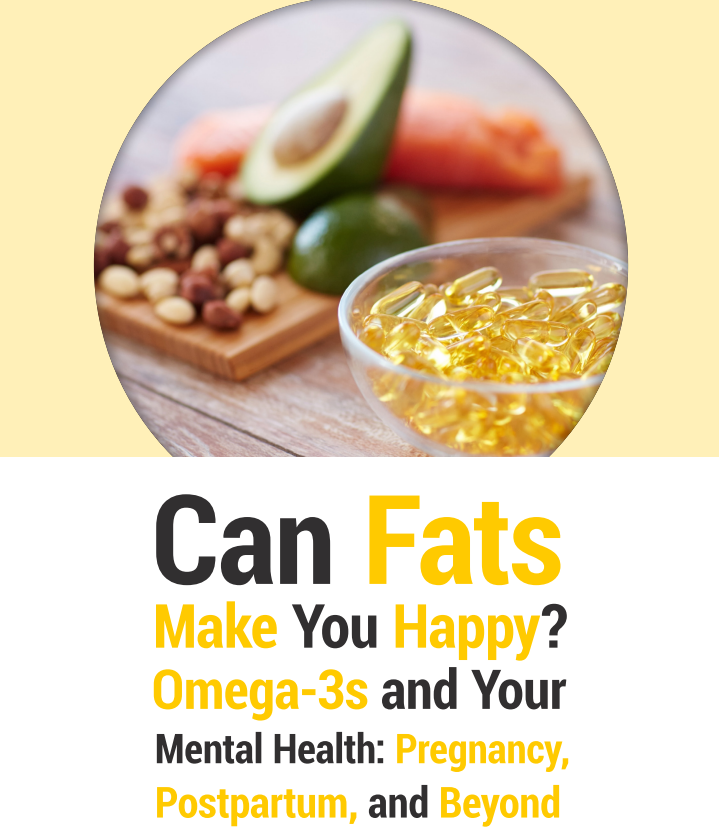Omega-3 Oils:
Pregnancy, Birth and Breastfeeding
Omega 3 oils have a wide range of effect, including:
supporting cardio-vascular health
maintaining healthy blood sugar levels
promoting optimal reproductive cycles
healthy joint ability
supporting mental health and immune system function
and
helping support normal brain and nervous system function.
Omega 3 oils are essential for your baby's developing brain and eyes.
What most people do not know is that these oils are also important in the process of helping a faster and easier birth.
Consuming omega 3 oils through foods such as these listed below provides the long-chain fatty acids needed in pregnancy:
oily cold-water fish such as sardines, mackerel, salmon and anchovies
grass fed meat
omega 3 eggs and other foods that have been fortified.
Supplements (i.e. fish oils) can also provide the essential DHA for mother and baby.
The majority of prenatal vitamins do not have DHA in them, so check your brand. A daily intake of 500 mg of DHA is considered reasonable for adults and in pregnancy - many people consume more.
I am not a midwife, nutritionist or anyone with credentials in this department, so check with your careprovider about foods and supplements.
From what I see online, there is a lot of strong opinion on this topic. Personally, I value the opinion of Holistic Nutritionists; Obstetricians are not knowledgeable on this topic; some Registered Midwives are and some are not.
Short-chain omega 3s such as flax, chia, walnut, etc are not used by the body efficiently (you need to eat a LOT to get any benefit), which is why the foods and supplements above are promoted.
Omega 3 and Pregnancy
Research shows a reduction in preterm labour, pre-eclampsia and IUGR (intra-uterine growth restriction, or small baby born at term).
I do not claim to be completely up to date on the research, so below is a link to Chris Kresser's website with information on fish intake.
Chris promotes Paleo nutrition in general and specifically in pregnancy. This approach tries to approximate what our ancestors have eaten for a very long time and fish is an important part of what our bodies have been designed to consume, as per the Paleo approach.
Omega 6 Fatty Acids
Any discussion on omega 3 would be remiss if there wasn't information also on omega 6.
All vegetable oils are omega 6 and are typically rancid before opening.
Experts in this field recommend eliminating canola, sunflower, safflower and cottonseed oils.
Olive oil is acceptable, but cannot be used for frying (creates trans-fats).
Coconut oil is good at high temperatures and is acceptable for frying. Ghee is also popular; lard (organic) is making a comeback as a stable fat for high heat cooking.
For the first time in human history, we are consuming omega 6 oils in staggeringly high quantities. As a pro-inflammatory oil, it is implicated in almost every condition that involves inflammation...which is pretty much every illness and disease facing us these days.
The goal is to significantly reduce omega 6, while also increasing omega 3. It doesn't work to eat an inflammatory diet and then pop a fish oil pill and think that this evens everything out. As an anti-inflammatory agent, omega 3 helps provide balance, but only if we dramatically reduce vegetable and seed oils.
The plan is to get the ebook ready for download for easy reference. I apologize for the delay.
In the meantime, anyone enrolled in the ChildbirthJoy Prenatal Hypnosis series will learn more detail on the effect of omega 3 oils on childbirth and one theory as to why it can help with a significantly faster and easier labour.
Shawn
30 minute introductory video
Omega 3 and Birth: Part Two
coming soon
Can Fats Make You Happy?

Free ebook from Praeclarus Press (8 pages): click here.